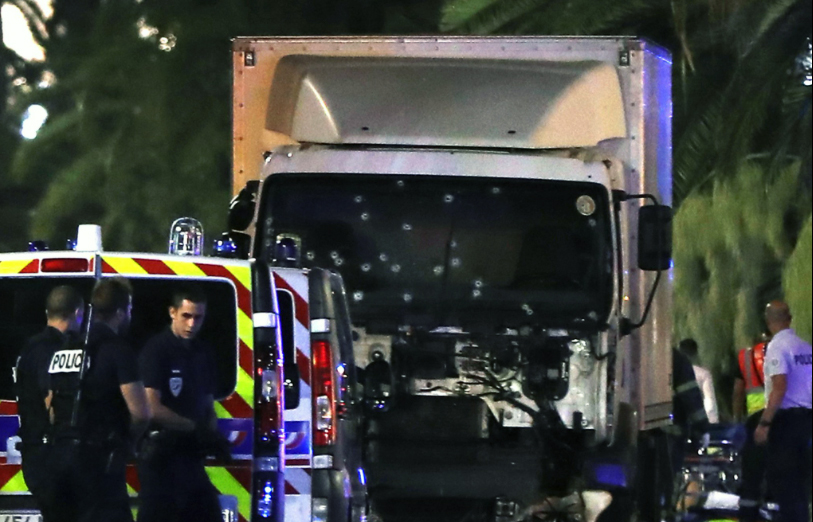Blog
Blog
Programming Human Beings to Build a Hate-Free Internet
November 30, 2016This year’s wild presidential campaign was not only a test of two very different politicians but of humanity in general. Because social media is now far more entrenched than four years ago, we were effectively subjected to a giant, real-world experiment. The research question: how exactly do we treat one another when sensitive matters of ...
News
2017 ISA Junior Scholar Meeting
November 29, 2016The International Studies Association (ISA) Junior Scholar Meeting is a facilitated meet and greet where established academics engage with early career scholars. These Junior Scholars range from current PhD students to recent Post-Doctorates. Prof Maura Conway, Professor of International Security in the School of Law and Government at Dublin City University and Coordinator of the VOX-Pol ...
Blog
Indian Response to Online Extremism
November 23, 2016The United Nations General Assembly resolution adopted in July 2016 highlights the need to counter extremist narratives online. In the recent past, extremist content, usually content aiding terrorist activity has become a global concern. This post examines the methods adopted by state authorities and private entities to counter such online extremism. State Response The response to growing ...
News
Joint INFOCORE, MeCoDEM, VOX-Pol workshop on Social Media, Conflict and Democracy concludes in Brussels
November 21, 2016VOX-Pol, in conjunction with two other EU FP7-funded projects, INFOCORE and MeCoDem, held a joint workshop themed “Social Media, Conflict and Democracy: Utopian Visions, Dystopian Futures and Pragmatic Policies” at the Press Club Brussels on Friday, November 18. Among the central questions addressed in the workshop entitled “Social Media, Conflict & Democracy: Utopian Visions, Dystopian Futures ...
Blog
Some Recent Trends in the Use of the Internet/ICT for Terrorist Purposes – Part III
November 16, 2016The following is the third of three blog posts reporting on discussions at a workshop held in the Swiss Federal Institute of Technology, ETH Zurich, Switzerland on 25 August 2016 under the auspices of the UN Counter Terrorism Committee Executive Directorate (UNCTED) and the Swiss-based ICT4Peace Foundation and their joint project on ‘Private Sector Engagement in ...
News
NATO Science for Peace and Security-funded Advanced Research Workshop on ‘Terrorist Use of the Internet: Assessment and Response’
November 10, 2016A NATO Science for Peace and Security-funded Advanced Research Workshop on ‘Terrorist Use of the Internet: Assessment and Response’, jointly organised by VOX-Pol and the University of Swansea’s Cyberterrorism Project, was hosted at Dublin City University from 27 – 29 June, 2016. The invitation-only workshop provided an opportunity for the 60 participants which included academics, ...
Newsletter
VOX-Pol Newsletter 3(4) November 2016
November 10, 2016Welcome to Vol. 3 Issue 4 of the VOX-Pol Newsletter. If you have colleagues or friends who may be interested in the content of this newsletter or any events and research carried out by VOX-Pol, please encourage them to subscribe via our website. Follow us on Twitter @VOX_Pol for live updates and releases. Yours sincerely, The VOX-Pol ...
Blog
Some Recent Trends in the Use of the Internet/ICT for Terrorist Purposes – Part II
November 9, 2016The following is the second of three blog posts reporting on discussions at a workshop held in the Swiss Federal Institute of Technology, ETH Zurich, Switzerland on 25 August 2016 under the auspices of the UN Counter Terrorism Committee Executive Directorate (UNCTED) and the Swiss-based ICT4Peace Foundation and their joint project on ‘Private Sector Engagement ...
Blog
Some Recent Trends in the Use of the Internet/ICT for Terrorist Purposes – Part I
November 2, 2016The following is the first of three blog posts reporting on discussions at a workshop held in the Swiss Federal Institute of Technology, ETH Zurich, Switzerland on 25 August 2016 under the auspices of the UN Counter Terrorism Committee Executive Directorate (UNCTED) and the Swiss-based ICT4Peace Foundation and their joint project on ‘Private Sector Engagement ...
Blog
Online Responses to Terrorist Attacks: A #niceattack Case Study – Part 2: The Aftermath
October 26, 2016This blog post is a follow-up to last week’s post on Twitter activity following the terrorist attack that took place in Nice, France, on 14 July, 2016 and associated real-world events during the ensuing week. It is part of a larger project exploring hashtag activism in CVE. The first posts traced the online reaction to ...









